Cornwall's devolution deal formally offered
- Published
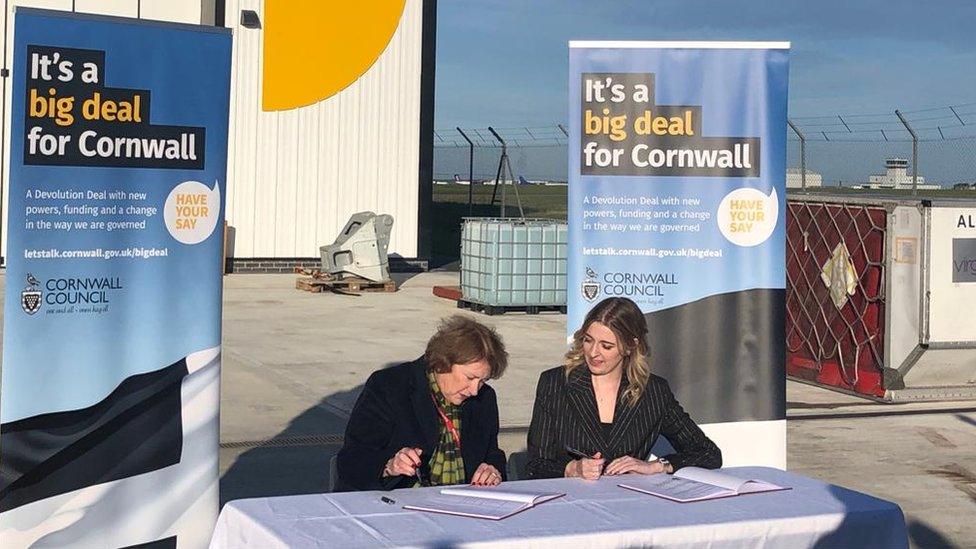
The deal promises up to £360m in funding over the next 30 years
A devolution deal handing more powers to Cornwall has now been formally offered.
The deal will transfer "new money and power into the hands of local leaders", according to the government.
But it hinges on the controversial and unresolved issue of whether the county should have a directly elected mayor.
Cornwall Council's Conservative leader Linda Taylor said it would "allow us to make future plans with confidence".
The formal offer was made by Levelling Up Minister Dehenna Davison to council leader Linda Taylor at Spaceport Cornwall.
The government has insisted a locally elected mayor, who would lead Cornwall Council, is a necessary requirement for the deal to go ahead.
It said the mayor would have greater control over transport budgets, building and skills delivery.
But the question of whether Cornwall should have a directly elected mayor has prompted protests outside Cornwall Council.
On Tuesday the decision on whether to hold a referendum on the issue was deferred until the end of a public consultation.
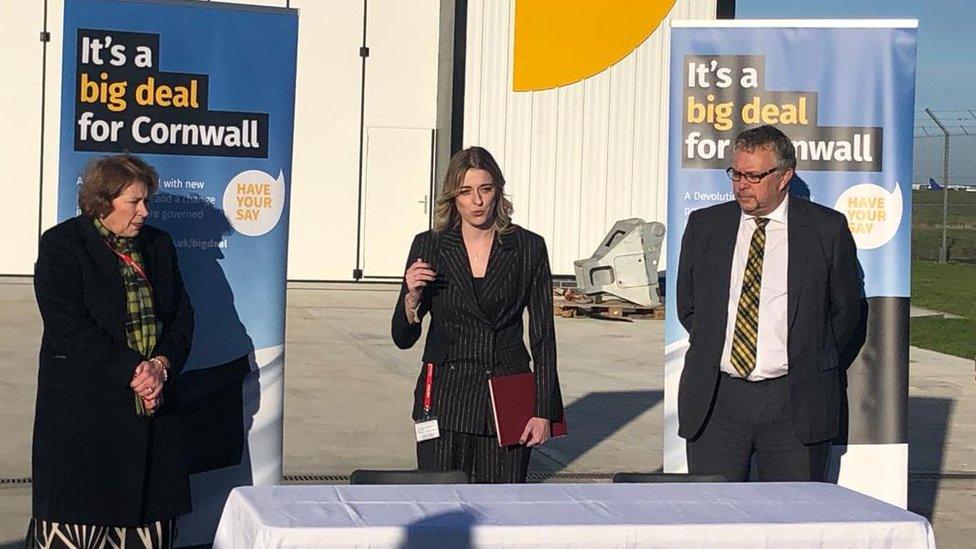
The deal will require the election of a mayor
The 10-week consultation is set to begin on 9 December.
The devolution deal includes greater influence to tackle challenges of second homes, control over the adult education budget and support to build affordable homes on brownfield sites.

Analysis by Martyn Oates, Political Editor, BBC South West
Since March all we had known was that the government had invited Cornwall to apply for a mayoral deal and a bid had promptly been submitted.
Today the financial reward attached to the deal - and more details of the devolved powers being offered - have been revealed.
Most interesting, perhaps, is the suggestion that it could lead to stricter controls on second homes and short-term holiday lets.
Locally, both are widely thought to contribute to the chronic shortage of affordable housing in Cornwall and the wider South West.
But the details of the deal are unlikely to convince critics vehemently opposed to the idea of concentrating power in the hands of a single, directly-elected leader.
The Government, though, is adamant that a mayor is obligatory for the highest level of devolution.
The top-tier authorities in neighbouring Devon also submitted a devolution bid in the spring.
The fact it is going nowhere fast is not unrelated to their refusal to accept a mayor.

Ms Davison said: "Cornwall is a beautiful area of the UK with a rich heritage, a renowned coastline and a fantastic array of businesses but for too long it has not received the levers it needs to level up and address the unique challenges it faces."
The government said the deal would provide funding over the next 30 years of as much as £360m.
'Powers and influence'
Council leader Mrs Taylor said: "The government has made it clear that the proposed deal is conditional on making our governance change.
"I am appealing to one and all to carefully consider this huge opportunity for Cornwall to receive more funding, powers and influence - and have your say on the deal that will help shape Cornwall's future when the consultation begins next week."
If the deal goes ahead elections for Cornwall Council's new mayor could take place in May 2024.

Follow BBC News South West on Twitter, external, Facebook, external and Instagram, external. Send your story ideas to spotlight@bbc.co.uk.
Related topics
- Published30 November 2022
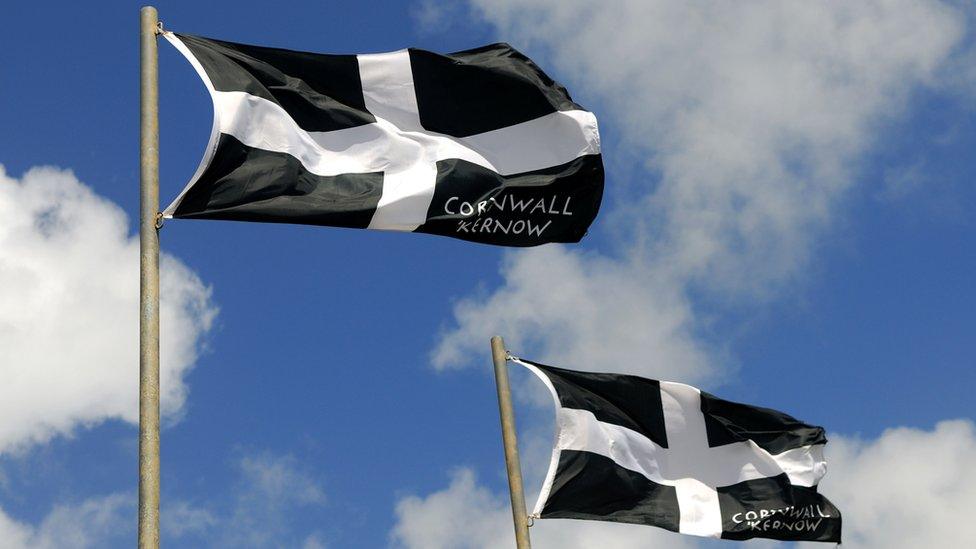
- Published29 November 2022
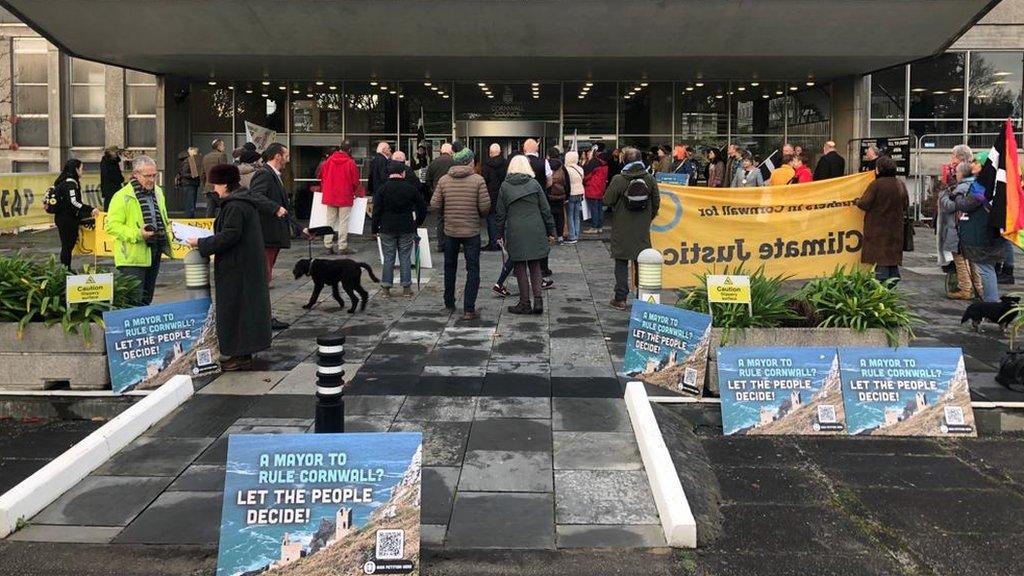
- Published25 November 2022
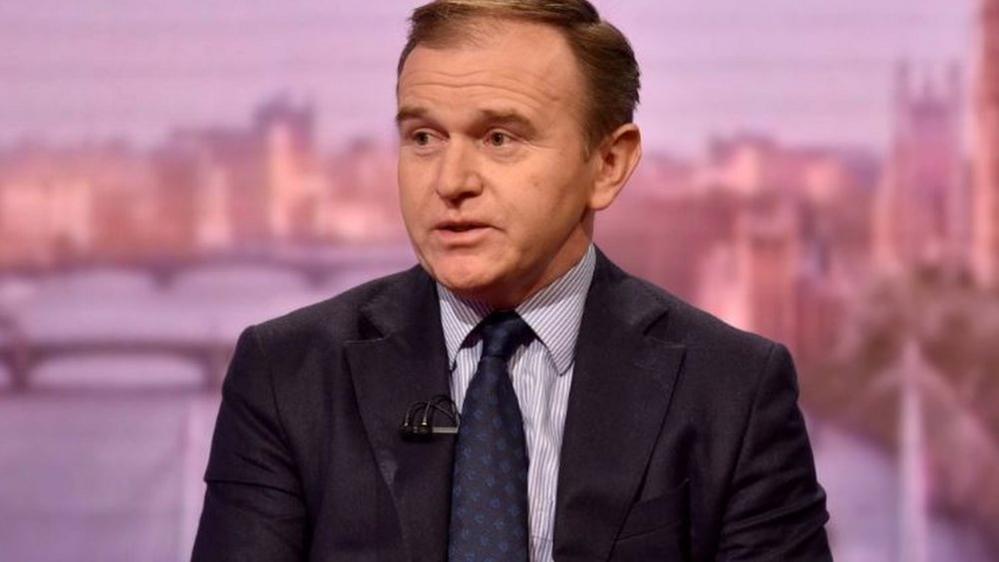
- Published17 November 2022
